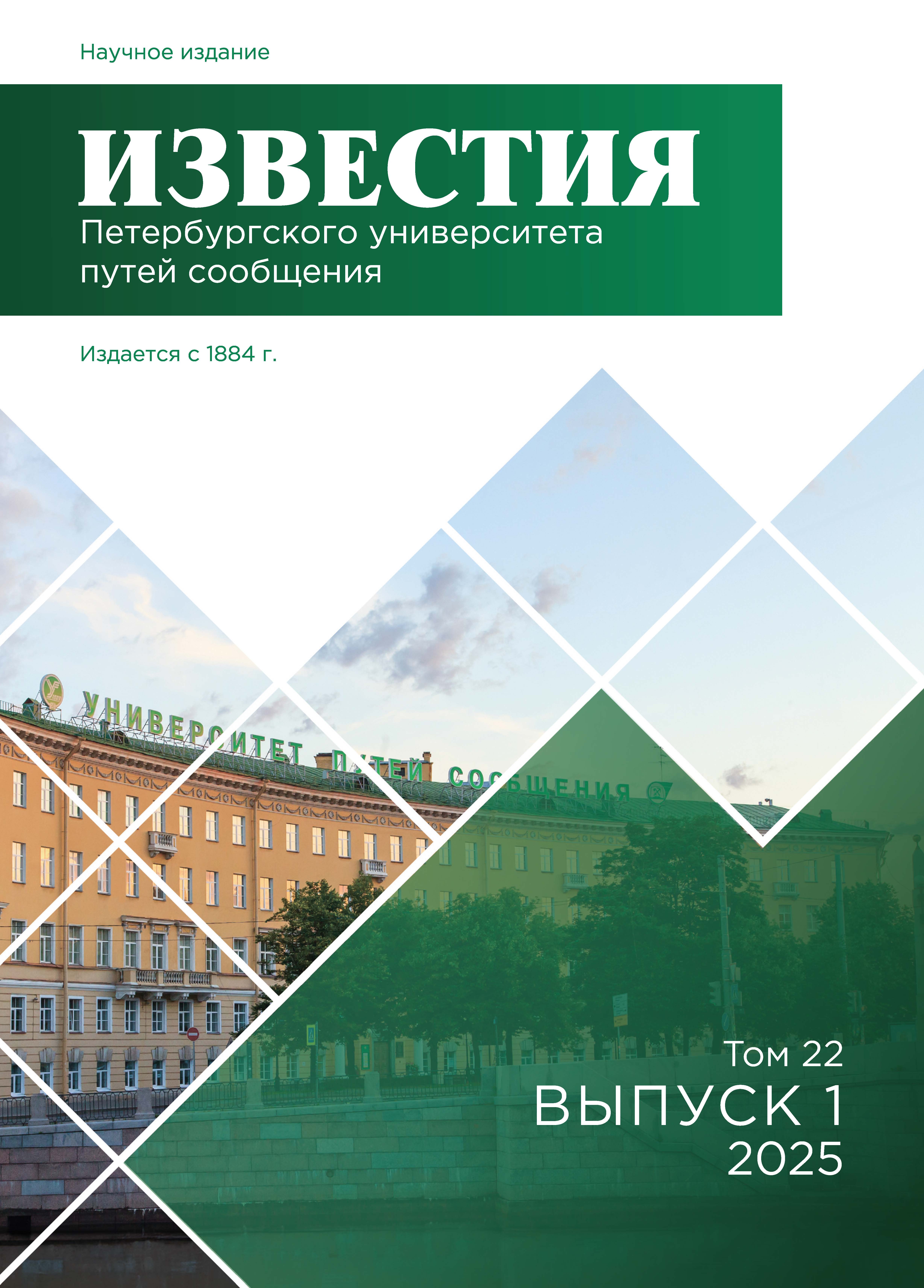Russian Federation
Russian Federation
Russian Federation
Russian Federation
Russian Federation
Purpose: To select and verify methods and algorithms of machine learning to build dynamic models of a train energy-efficient movement in real time. Earlier, the use of DC electric locomotives for driving freight trains was assessed and the factors influencing the energy-efficient train movement were identified. This paper is devoted to the latest innovations in the field of automated train control within the framework of the JSC “Russian Railways” grant project for young scientists to carry out scientific research aimed at creating new equipment and technologies for railway transport. Methods: Optimization methods for machine learning were applied using model nonlinear dynamic systems. Results: The Levenberg-Marquardt method has been found most appropriate for determining the optimal position of the train driver controller by using recurrent neural network training. Graphical dependences of error histograms and total mean square error (MSE) variations in the process of artificial neural network training have been obtained. Practical significance: The results of the research can be used in the development of hardware and software systems using artificial intelligence methods and algorithms aimed at energy-efficiency improvement in transportation process.
Machine learning, locomotive, artificial intelligence, automated control, energy-optimal schedule, energy efficiency
1. Energeticheskaya strategiya holdinga «Rossiyskie zheleznye dorogi» na period do 2020 goda i na perspektivu do 2030 goda / Utverzhdena rasporyazheniem OAO «RZhD» ot 14 dekabrya 2016 g. № 2537r. — M., 2016. — 76 s.
2. Shubinskiy I. B. K ocenke bezopasnosti sistemy avtovedeniya poezdov / I. B. Shubinskiy, H. Shebe, E. N. Rozenberg // Nadezhnost'. — 2021. — T. 21. — № 4. — S. 31–37. — DOI:https://doi.org/10.21683/1729-2646-2021-21- 4-31-37.
3. Sychugov A. N. Primenenie mashinnogo obucheniya dlya analiza tehnicheskih harakteristik i parametrov ekspluatiruemogo podvizhnogo sostava na vysokoskorostnyh zheleznodorozhnyh magistralyah / A. N. Sychugov // Byulleten' rezul'tatov nauchnyh issledovaniy. — 2023. — № 2. — S. 171–180. — DOI:https://doi.org/10.20295/2223-9987- 2023-2-171-180.
4. Scheepmaker G. M. Review of energy-efficient train control and timetabling / G. M. Scheepmaker, R. M. P. Goverde, L. G. Kroon // European Journal of Operational Research. — 2017. — Iss. 257(2). — Pp. 355–76. URL: http://dx.doi.org/10.1016/j.ejor.2016.09.044.
5. Wang Y. Optimal trajectory planning for trains — A pseudospectral method and a mixed integer linear programming approach / Y. Wang, B. De Schutter, T. J. J. van den Boom et al. // Transportation Research Part C: Emerging Technologies. — 2013. — Vol. 29. — Pp. 97–114. — URL: http://dx.doi.org/10.1016/j.trc.2013.01.007.
6. Wang X. Intelligent operation of heavy haul train with data imbalance: A machine learning method / X. Wang, S. Li, T. Tang et al. // Knowledge-Based Systems. — 2019. — Vol. 163. — Pp. 36–50. — URL: http://dx.doi.org/10.1016/j. knosys.2018.08.015.
7. Zhang C. Y. Data-driven train operation models based on data mining and driving experience for the diesel-electric locomotive / C. Y. Zhang, D. Chen, J. Yin et al. // Advanced Engineering Informatics. — 2016. — Vol. 30(3). Pp. 553– 63. — URL: http://dx.doi.org/10.1016/j.aei.2016.07.004.
8. Zhu F. Accounting for dynamic speed limit control in a stochastic traffic environment: A reinforcement learning approach / F. Zhu, S. V. Ukkusuri // Transportation Research Part C: Emerging Technologies. — 2014. — Vol. 41. — Pp. 30–47. — URL: http://dx.doi.org/10.1016/j.trc.2014.01.014.
9. Istomin S. G. Tekuschee sostoyanie i perspektivy razvitiya sistem energooptimal'nogo upravleniya elektrovozami 2ES6 / S. G. Istomin, K. I. Domanov, A. P. Shatohin i dr. // Vestnik Nauchno-issledovatel'skogo instituta zheleznodorozhnogo transporta (Vestnik VNIIZhT). — 2024. — T. 83. — № 3. — S. 215–229.
10. Akat'ev Ya. A. Analiz osobennostey algoritmov mashinnogo obucheniya v avtomatizirovannyh sistemah vozhdeniya / Ya. A. Akat'ev, A. R. Latypov // E-Scio. — 2022. — № 1(64). — S. 641–655.
11. Chopra D. Introduction to Machine Learning / D. Chopra, R. Khurana // Introduction to Machine Learning with Python. — 2023. — Vol. 28. — Pp. 15–29. — URL: http://dx.doi.org/10.2174/9789815124422123010004.









